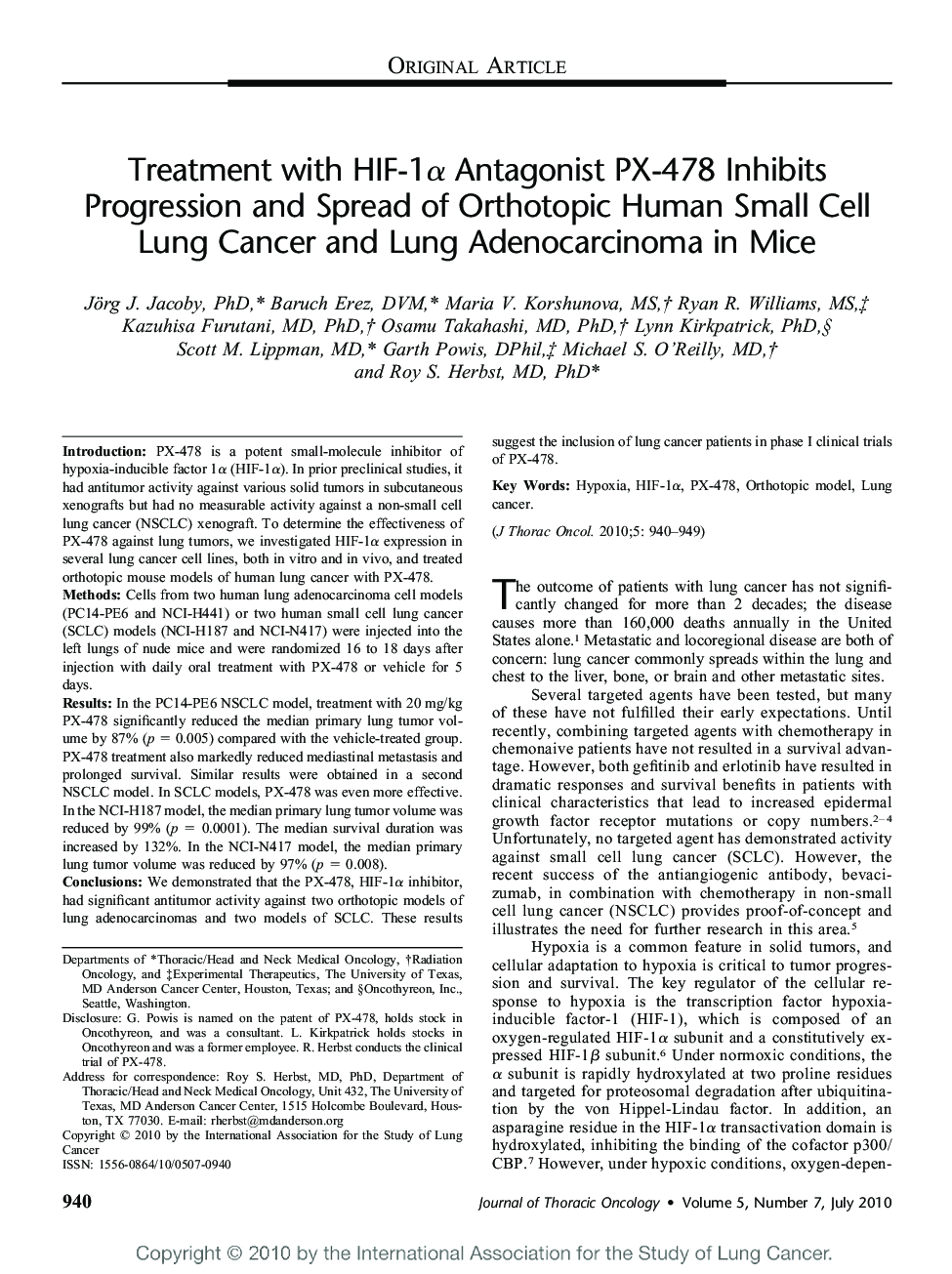| Article ID | Journal | Published Year | Pages | File Type |
|---|---|---|---|---|
| 3990298 | Journal of Thoracic Oncology | 2010 | 10 Pages |
IntroductionPX-478 is a potent small-molecule inhibitor of hypoxia-inducible factor 1α (HIF-1α). In prior preclinical studies, it had antitumor activity against various solid tumors in subcutaneous xenografts but had no measurable activity against a non-small cell lung cancer (NSCLC) xenograft. To determine the effectiveness of PX-478 against lung tumors, we investigated HIF-1α expression in several lung cancer cell lines, both in vitro and in vivo, and treated orthotopic mouse models of human lung cancer with PX-478.MethodsCells from two human lung adenocarcinoma cell models (PC14-PE6 and NCI-H441) or two human small cell lung cancer (SCLC) models (NCI-H187 and NCI-N417) were injected into the left lungs of nude mice and were randomized 16 to 18 days after injection with daily oral treatment with PX-478 or vehicle for 5 days.ResultsIn the PC14-PE6 NSCLC model, treatment with 20 mg/kg PX-478 significantly reduced the median primary lung tumor volume by 87% (p = 0.005) compared with the vehicle-treated group. PX-478 treatment also markedly reduced mediastinal metastasis and prolonged survival. Similar results were obtained in a second NSCLC model. In SCLC models, PX-478 was even more effective. In the NCI-H187 model, the median primary lung tumor volume was reduced by 99% (p = 0.0001). The median survival duration was increased by 132%. In the NCI-N417 model, the median primary lung tumor volume was reduced by 97% (p = 0.008).ConclusionsWe demonstrated that the PX-478, HIF-1α inhibitor, had significant antitumor activity against two orthotopic models of lung adenocarcinomas and two models of SCLC. These results suggest the inclusion of lung cancer patients in phase I clinical trials of PX-478.
